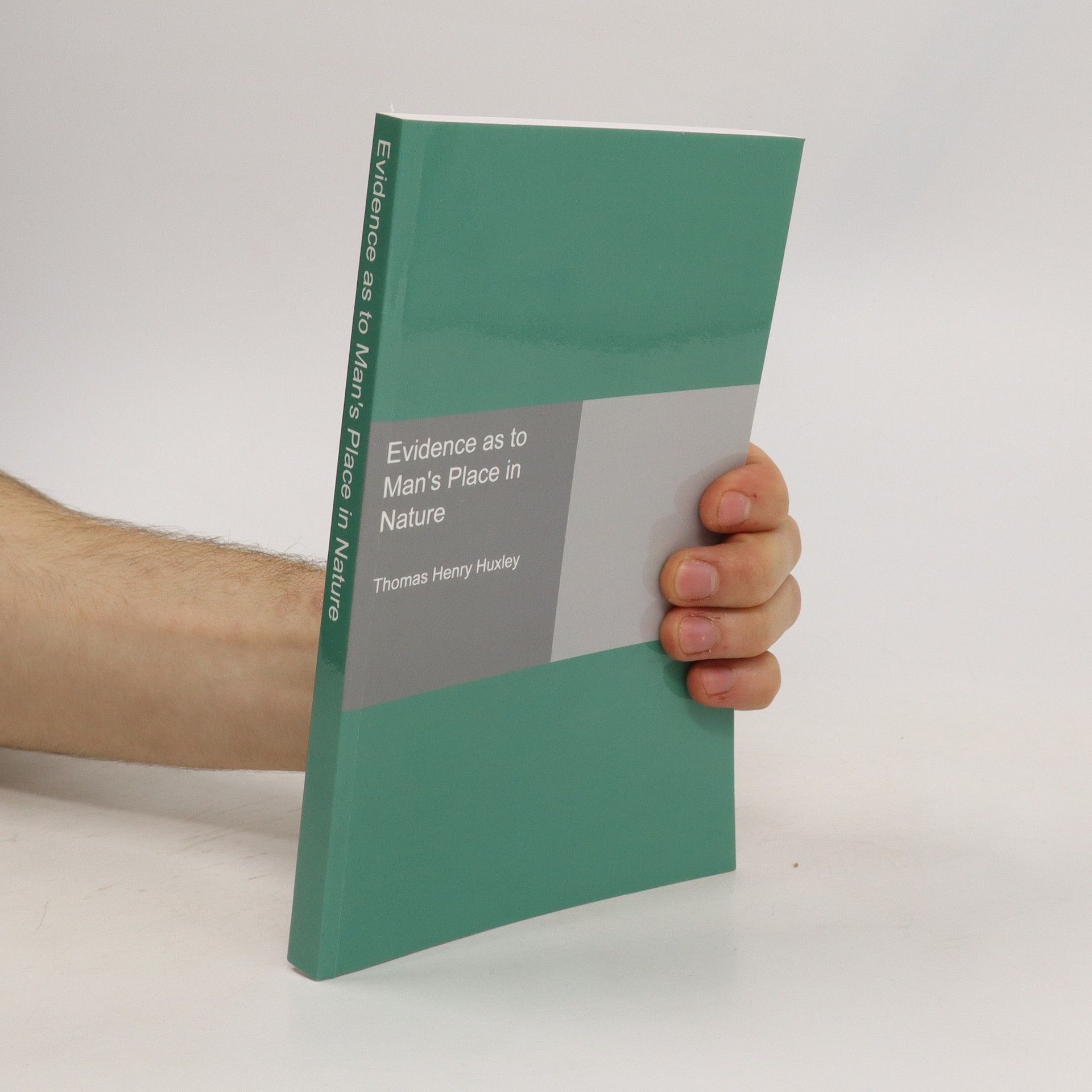This reprint preserves the essence of the original work published in 1882, offering readers a glimpse into the themes and narratives of the time. The text reflects the historical context and cultural nuances of the era, making it a valuable resource for those interested in literature from the late 19th century. The book's enduring relevance and its exploration of timeless themes ensure that it remains an important piece in the literary canon.
Thomas Henry Huxley Books
Thomas Henry Huxley was a pioneering English biologist and physician, famously coining the term "agnostic." He defined agnosticism as a rigorous method of inquiry, emphasizing that one should follow reason as far as it leads and should not assert conclusions that are not demonstrated or demonstrable. Huxley became a staunch defender of scientific thought, often engaging in debates to champion reason over dogma. His intellectual contributions significantly shaped the discourse between science and religion in his era.






Evolution and Ethics - and other essays is an unchanged, high-quality reprint of the original edition of 1897. Hansebooks is editor of the literature on different topic areas such as research and science, travel and expeditions, cooking and nutrition, medicine, and other genres. As a publisher we focus on the preservation of historical literature. Many works of historical writers and scientists are available today as antiques only. Hansebooks newly publishes these books and contributes to the preservation of literature which has become rare and historical knowledge for the future.
History of Paleontology
- 122 pages
- 5 hours of reading
What is life? This question gives a new interest to every department of science that relates to life in any form, and the history of life offers a most suggestive field for research. The paleontology took its origin in the mind of the first person who, finding something like a shell or a bone naturally imbedded in gravel or in rock, indulged in speculations upon the nature of this thing which he had dug out-this "fossil"-and upon the causes which had brought it into such a position. In this rudimentary form, a high antiquity may safely be ascribed to paleontology, inasmuch as we know that, five hundred years before the Christian era, the philosophic doctrines of Xenophanes were influenced by his observations upon the fossil remains exposed in the quarries of Syracuse. From this time forth, not only the philosophers, but the poets, the historians, the geographers of antiquity occasionally refer to fossils; and after the revival of learning lively controversies arose respecting their real nature.
The Past Condition of Organic Nature
- 22 pages
- 1 hour of reading
The Past Condition of Organic Nature by Thomas Henry Huxley has been regarded as significant work throughout human history, and in order to ensure that this work is never lost, we have taken steps to ensure its preservation by republishing this book in a contemporary format for both current and future generations. This entire book has been retyped, redesigned, and reformatted. Since these books are not made from scanned copies, the text is readable and clear.
This Book "The Interpreters of Genesis and the Interpreters of Nature; Essay #4 from "Science and Hebrew Tradition"" has been considered important throughout the human history, and so that this work is never forgotten we have made efforts in its preservation by republishing this book in a modern format for present and future generations. This whole book has been reformatted, retyped and designed. These books are not made of scanned copies of their original work and hence the text is clear and readable.
Geological Contemporaneity and Persistent Types of Life
- 22 pages
- 1 hour of reading
This work emphasizes the significance of geological contemporaneity and the enduring types of life throughout human history. It has been carefully preserved and republished in a modern format, ensuring clarity and readability through reformatting and retyping rather than relying on scanned copies. The effort aims to keep the book accessible for both present and future generations, highlighting its lasting importance in understanding geological and biological concepts.
Focusing on accessibility, this book is a reproduction of a historical work presented in large print. The publishing house Megali is dedicated to making literature more accessible for individuals with impaired vision, ensuring that important texts remain available to a wider audience.
The Origin of Species; From 'The Westminster Review', April 1860
in large print
- 60 pages
- 3 hours of reading
Focusing on accessibility, this publication from Megali is a reproduction of a historical work designed in large print for easier reading by individuals with impaired vision. The emphasis on making classic literature more accessible highlights the importance of inclusivity in reading.
Exploring themes of education and scientific inquiry, this collection features a series of addresses that delve into various aspects of American life and thought. The included lecture on the study of biology emphasizes the importance of understanding living organisms and their environments, advocating for a thoughtful approach to science. The work reflects the author's insights into the interplay between knowledge, society, and the natural world, making it a significant contribution to both literary and scientific discourse.
Darwiniana Vol. II
- 254 pages
- 9 hours of reading
Exploring a wide range of medical, philosophical, and social topics, this anthology showcases the writings of Thomas Henry Huxley, a prominent 19th-century biologist and advocate of Darwin's theory of evolution. His essays examine diverse fields like biology and anthropology while addressing the interplay between science and religion, human knowledge, and the societal implications of scientific advancements. Huxley's clear, engaging style makes complex ideas accessible, reflecting his commitment to reasoned inquiry and the advancement of scientific understanding, impacting readers interested in the intersection of science and society.